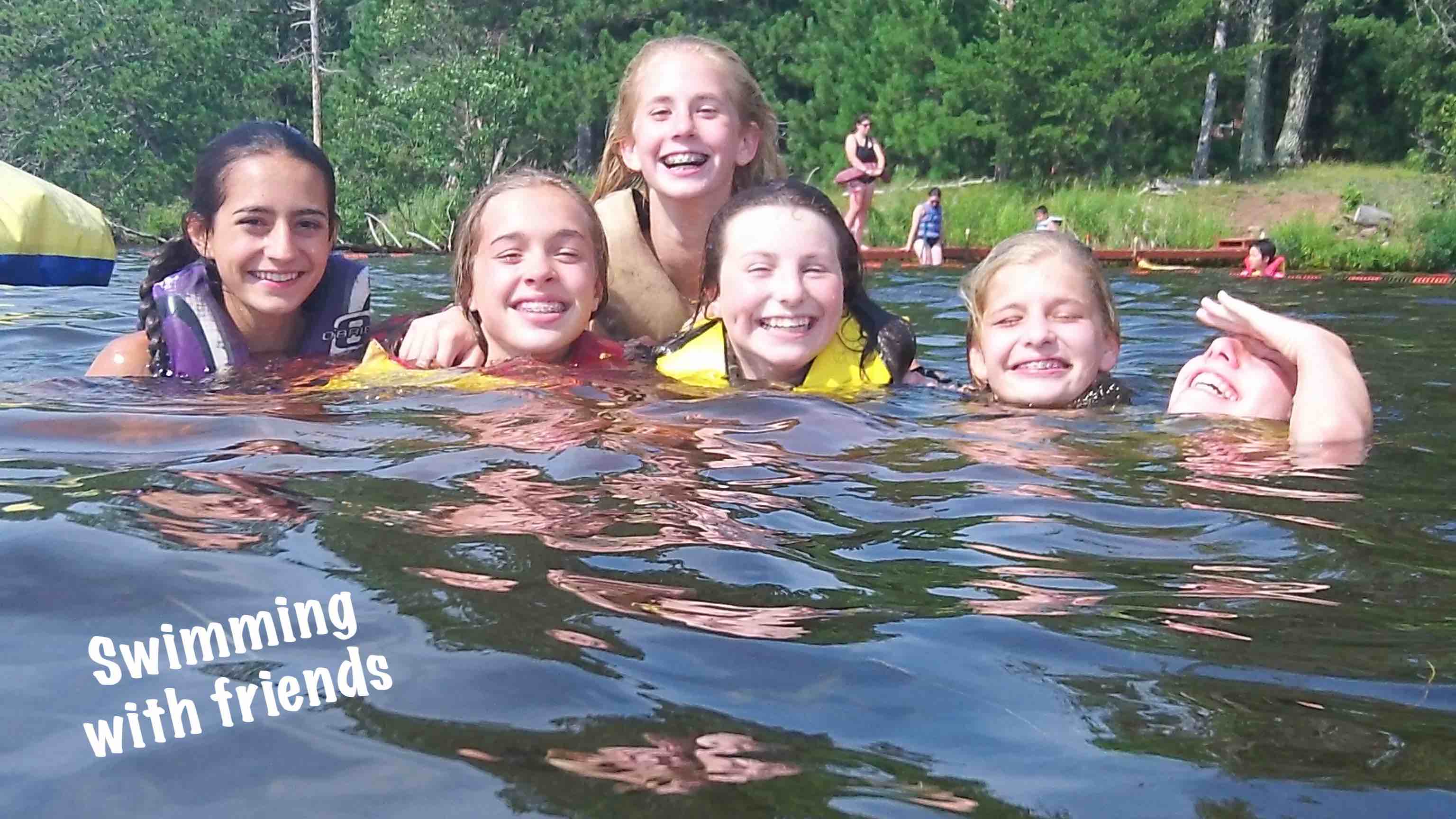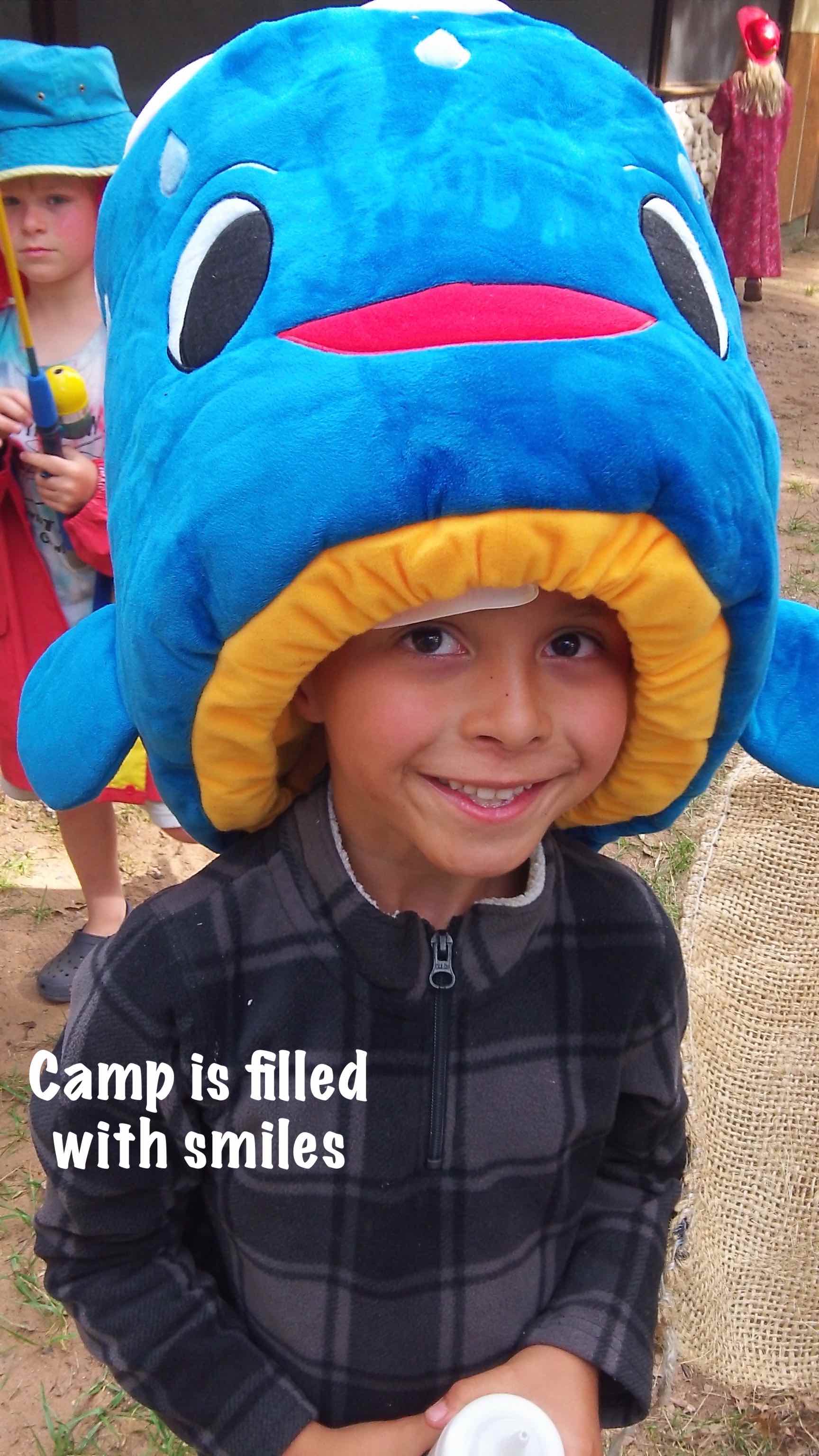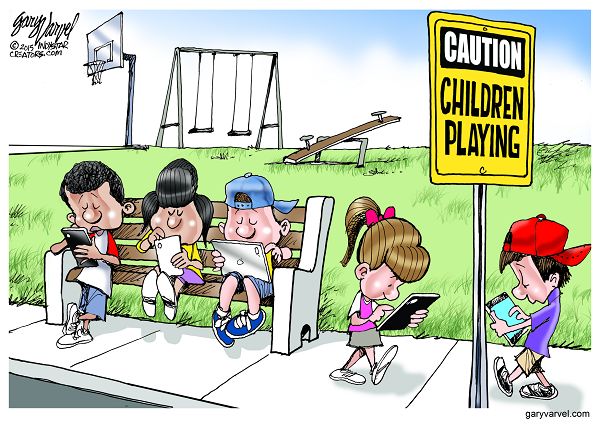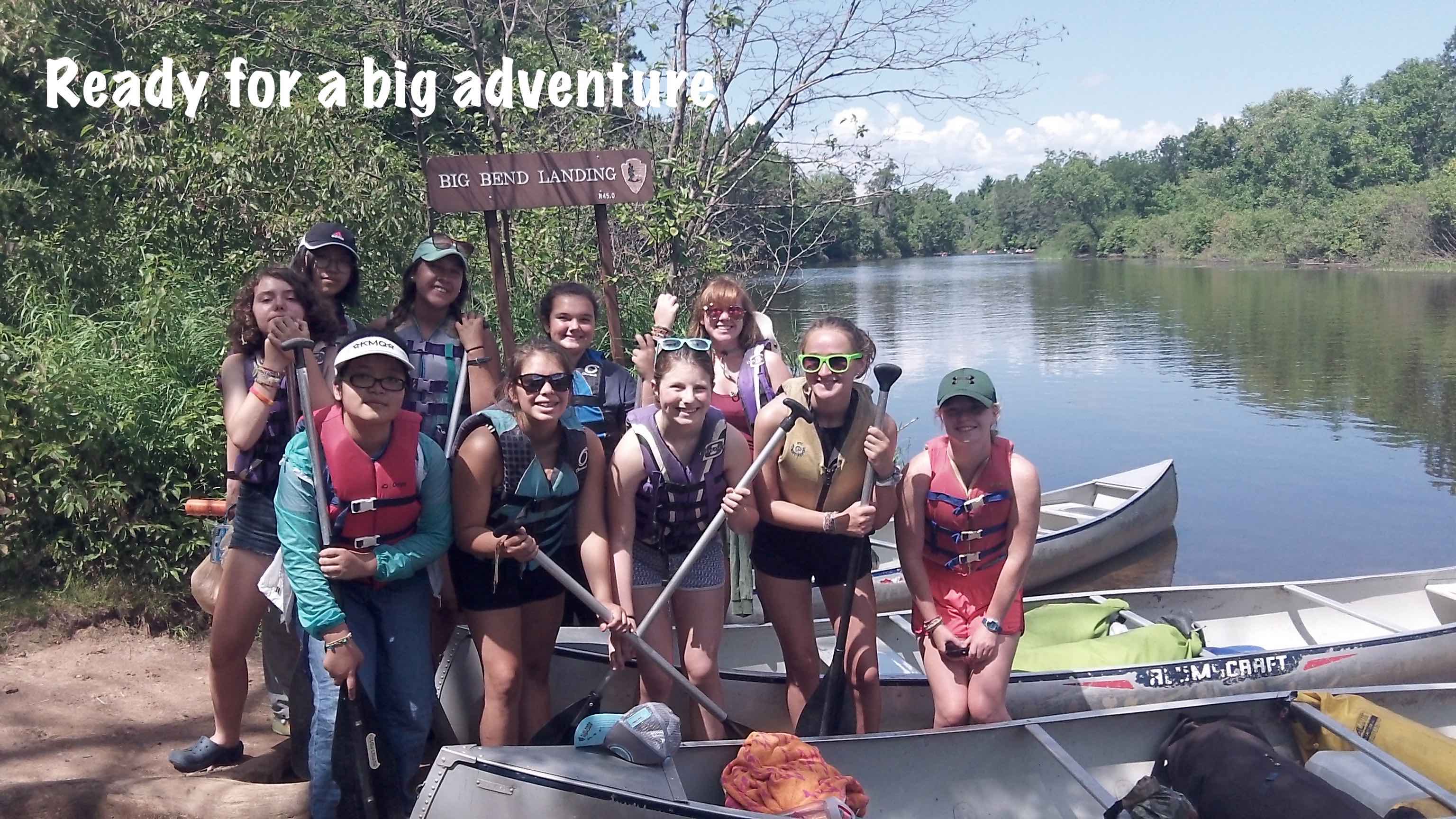Displaying items by tag: summer camp play

Our Campers are Superheroes
We are living in the age of the superhero. Superhero shows are popular on TV networks, it seems like a new superhero movie is released at least once a month. Sometimes the world is a scary place - people want a superhero to rely on to save the day. Superheroes remind us that there is good in humanity. Superheroes give us reasons to dream about what could happen. Superheros show that it is possible to succeed despite hardships.
We know these things all too well, because at Swift, our campers are superheroes. Our campers amaze and impress us every day. Our campers try new things, solve problems, fix things that are broken, and bring little bits of happiness to the lives of everyone around them. I realize that saying all of our campers are superheroes sounds a bit cliche, but let me share what lead me to this conclusion:
Every great superhero knows that “With great power comes great responsibility” and our campers are responsible and learning to be more so each and every day - sometimes in little ways and sometimes in big ways. Our campers learn to do their laundry, fold their clothes, make their beds and clear a table. From far away, these might look like little things, but when a parent is trying to put a younger child to bed, sign 6 different permission slips for school and shovel the drive all at the same time, a child that can clear the table or start a load of laundry can save the day. Campers show us that they are responsible when they work towards earning achievement awards. It’s not responsible to waste resources - superheroes have a calling to use their skills. Getting achievement awards at camp isn’t easy - it requires a lot of work to meet the requirements, but whenever a child brings a completed award form and knows all about their activity, we can see how responsible they are being. They are responsibly making sure that their talents and hard work doesn’t go to waste.
Superheroes are resilient. When a situation goes bad, they figure out another way to save the day. Honestly, one of my favorite superpower to see a camper display is resilience. Witnessing a camper survive a struggle and then try other things to fix it and solve the problem is an absolutely awesome experience. When going out to the pond to explore, a camper usually doesn’t come back with an enormous frog to show everyone on their first try, which can be disappointing. But three days later, that camper has enlisted three more campers and an elaborate strategy for cornering “the big one” and we’ll see them up at the office later that day with a frog that must weigh nearly 3 pounds in a bucket, wanting to share their success and get a picture with their “catch of the day”. A camper on a canoe trip that gets stuck on a rock hiding just below the water’s surface doesn’t give up or shake their canoe paddle at the sky while wailing. (Well, actually, they may do that last part, but only as a joke.) They stow their paddle, get out of the canoe, dislodge it and reboard with the help of their counselors. And if it happens again, they do the same things, as many times as it takes to get to their destination. That resilience keeps them going when things are frustrating. (And it often gets them s’mores in the end.)
 Superheroes are caring - if they didn’t want to ensure the well-being of others, superheroes wouldn’t have anyone to “hero” for. Campers show that they are caring through the sacrifices they make so that a communal living environment can work. Campers console a cabin mate that is homesick or frustrated. Older campers help the younger campers to learn the rules and to succeed at activities and games that they are still learning. Also, the amount of campers that come to the nature center each day to care for the animals there is amazing. They make sure that our camp critters have everything that they need: food, water, the right environment (a clean cage, heating lamps, etc) and of course provide them with lots of attention and love. Our campers are superheroes that care not only for one another, but for all the critters that live with them at camp.
Superheroes are caring - if they didn’t want to ensure the well-being of others, superheroes wouldn’t have anyone to “hero” for. Campers show that they are caring through the sacrifices they make so that a communal living environment can work. Campers console a cabin mate that is homesick or frustrated. Older campers help the younger campers to learn the rules and to succeed at activities and games that they are still learning. Also, the amount of campers that come to the nature center each day to care for the animals there is amazing. They make sure that our camp critters have everything that they need: food, water, the right environment (a clean cage, heating lamps, etc) and of course provide them with lots of attention and love. Our campers are superheroes that care not only for one another, but for all the critters that live with them at camp.
One of the strongest associations we have with superheroes is that they are brave. Our campers are impressively brave every day. For some campers, being brave starts when they get on the bus, or on a plane, or in their parents car to head to a place that they have never been before. New places and people are scary, and it takes a lot of bravery to head to a place that they are unfamiliar with. We see bravery in activities every day. Campers are brave when they participate in team building with their cabin by trusting their new friends to help them succeed. Campers are brave when they hop into the lake for a swim - there are many that have never swam in a natural body of water before. Campers are brave when they try a new activity at arts and crafts even though they are a little hesitant about how it will look when they complete it. Campers are brave when they head out on a camp trip or learn an advanced skill like how to right a capsized canoe.
Superheroes have a “Super-factor”. Some superheroes are great because they have a supernatural power that allows them to triumph over others. But there are also superheroes whose superpower is based on being extra successful at normal skills. These are our type of superheroes - this is one other thing that makes our campers superheroes. One camper might be super at always knowing the right thing to say. This seems kind of basic, but so many kids and people are a little bit awkward when it comes to comforting and encouraging others. These kids are the superheroes that are cheering their cabin mates on during a swimming activity or are sitting next to a cabin mate who is a little upset during quiet time. Another camper could be super at singing and remembering all the words to camp songs - this is the camper that is making the walk to activities or a hiking trip super by helping out the counselors to get the whole group to belt out a song. Another camper might be a super canoeist - they are the ones who can use their strength to keep the boat moving in the right direction while another camper tries out new skills.
They may not wear capes (though sometimes they do) but all of our campers are superheroes, and we see them becoming stronger and stronger each year. What is your child’s “super-factor”?

I recently found this comic and it really brought home the point of how times have changed in my lifetime. The addictive behavior of technology is a powerful force. The most recent impact is the closing of nearly 800 Toys R Us Stores in the USA. Yet this is only the beginning of how Play will change and in turn impact our kids. Below is a article by Esther Entin and published in The Atlantic that is important for all parents. It makes me realize that Overnight Summer Camp may be one of the last few areas that are tech free and dedicated to play.
What are your memories of playing as a child? Some of us will remember hide and seek, house, tag, and red rover red rover. Others may recall arguing about rules in kickball or stick ball or taking turns at jump rope, or creating imaginary worlds with our dolls, building forts, putting on plays, or dressing-up. From long summer days to a few precious after-school hours, kid-organized play may have filled much of your free time. But what about your children? Are their opportunities for play the same as yours were? Most likely not.
Play time is in short supply for children these days and the lifelong consequences for developing children can be more serious than many people realize.
THE DECLINE OF PLAY
An article in the most recent issue of the American Journal of Play details not only how much children's play time has declined, but how this lack of play affects emotional development, leading to the rise of anxiety, depression, and problems of attention and self control.
"Since about 1955 ... children's free play has been continually declining, at least partly because adults have exerted ever-increasing control over children's activities," says the author Peter Gray, Ph.D., Professor of Psychology (emeritus) at Boston College. Gray defines "free play" as play a child undertakes him- or her-self and which is self-directed and an end in itself, rather than part of some organized activity.
Gray describes this kind of unstructured, freely-chosen play as a testing ground for life. It provides critical life experiences without which young children cannot develop into confident and competent adults. Gray's article is meant to serve as a wake-up call regarding the effects of lost play, and he believes that lack of childhood free play time is a huge loss that must be addressed for the sake of our children and society.
WHO AND WHAT IS INTERFERING WITH CHILDREN'S PLAY?
Parents who hover over and intrude on their children's play are a big part of the problem, according to Gray. "It is hard to find groups of children outdoors at all, and, if you do find them, they are likely to be wearing uniforms and following the directions of coaches while their parents dutifully watch and cheer." He cites a study which assessed the way 6- to 8-year-olds spent their time in 1981 and again in 1997.
The researchers found that compared to 1981, children in 1997 spent less time in play and had less free time. They spent 18 percent more time at school, 145 percent more time doing school work, and 168 percent more time shopping with parents. The researchers found that, including computer play, children in 1997 spent only about eleven hours per week at play.
In another study, mothers were asked to compare their own memories of their playtime, to their children's current schedules. Eighty-five percent noted that their children played outdoors less frequently and for shorter periods of time than they had. The mothers noted that they restricted their own children's outdoor play because of safety concerns, a fact echoed in other surveys where parents mentioned child predators, road traffic, and bullies as reasons for restricting their children's outdoor play.
Adding to the problem, Gray notes, is our increasing emphasis on schooling and on adult-directed activities. Preschools and kindergartens have become more academically-oriented and many schools have even eliminated recess. It is not that anyone set out to do away with free play time. But its value has not been recognized. As a result, kids' free play time has not been protected.
FIVE WAYS PLAY BENEFITS KIDS
When children are in charge of their own play, it provides a foundation for their future mental health as older children and adults. Gray mentions five main benefits:
1. Play gives children a chance to find and develop a connection to their own self-identified and self-guided interests.
As they choose the activities that make up free play, kids learn to direct themselves and pursue and elaborate on their interests in a way that can sustain them throughout life. Gray notes that: "...in school, children work for grades and praise and in adult-directed sports, they work for praise and trophies.... In free play, children do what they want to do, and the learning and psychological growth that results are byproducts, not conscious goals of the activity."
2. It is through play that children first learn how to make decisions, solve problems, exert self control, and follow rules.
As children direct their own free play and solve the problems that come up, they must exert control over themselves and must, at times, accept restrictions on their own behavior and follow the rules if they want to be accepted and successful in the game.
As children negotiate both their physical and social environments through play, they can gain a sense of mastery over their world, Gray contends. It is this aspect of play that offers enormous psychological benefits, helping to protect children from anxiety and depression.
"Children who do not have the opportunity to control their own actions, to make and follow through on their own decisions, to solve their own problems, and to learn how to follow rules in the course of play grow up feeling that they are not in control of their own lives and fate. They grow up feeling that they are dependent on luck and on the goodwill and whims of others...."
Anxiety and depression often occur when an individual feels a lack of control over his or her own life. "Those who believe that they master their own fate are much less likely to become anxious or depressed than those who believe that they are victims of circumstances beyond their control." Gray believes that the loss of playtime lessons about one's ability to exert control over some life circumstances set the scene for anxiety and depression.
3. Children learn to handle their emotions, including anger and fear, during play.
In free play, children put themselves into both physically and socially challenging situations and learn to control the emotions that arise from these stressors. They role play, swing, slide, and climb trees ... and "such activities are fun to the degree that they are moderately frightening ... nobody but the child himself or herself knows the right dose."
Gray suggests that the reduced ability to regulate emotions may be a key factor in the development of some anxiety disorders. "Individuals suffering from anxiety disorders describe losing emotional control as one of their greatest fears. They are afraid of their own fear, and therefore small degrees of fear generated by mildly threatening situations lead to high degrees of fear generated by the person's fear of losing control." Adults who did not have the opportunity to experience and cope with moderately challenging emotional situations during play are more at risk for feeling anxious and overwhelmed by emotion-provoking situations in adult life.
4. Play helps children make friends and learn to get along with each other as equals.
Social play is a natural means of making friends and learning to treat one another fairly. Since play is voluntary and playmates may abandon the game at any time if they feel uncomfortable, children learn to be aware of their playmates' needs and attempt to meet them in order to maintain the play.
Gray believes that "learning to get along and cooperate with others as equals may be the most crucial evolutionary function of human social play ... and that social play is nature's means of teaching young humans that they are not special. Even those who are more skilled at the game's actions ... must consider the needs and wishes of the others as equal to their own, or else the others will exclude them." Gray cites increasing social isolation as a potential precursor to psychopathology and notes that the decline in play may be "both a consequence and a cause of the increased social isolation and loneliness in the culture."
5. Most importantly, play is a source of happiness.
When children are asked about the activities that bring them happiness, they say they are happier when playing with friends than in any other situation. Perhaps you felt this way when remembering your own childhood play experiences at the beginning of this article.
Gray sees the loss of play time as a double whammy: we have not only taken away the joys of free play, we have replaced them with emotionally stressful activities. "[A]s a society, we have come to the conclusion that to protect children from danger and to educate them, we must deprive them of the very activity that makes them happiest and place them for ever more hours in settings where they are more or less continually directed and evaluated by adults, setting almost designed to produce anxiety and depression."
THE LOSS OF PLAY AND RISE OF ANXIETY AND DEPRESSION
There has been a significant increase in anxiety and depression from 1950 to present day in teens and young adults and Gray cites several studies documenting this rise. One showed that five to eight times as many children and college students reported clinically significant depression or anxiety than 50 years ago and another documented a similar trend in the fourteen- to sixteen-year-old age group between 1948 and 1989.
Suicide rates quadrupled from 1950 to 2005 for children less than fifteen years and for teens and young adults ages 15-25, they doubled. Gray believes that the loss of unstructured, free play for play's sake is at the core of this alarming observation and that as a society, we should reassess the role of free play and the factors that seem to have all but eliminated it from our children's lives.
When parents realize the major role that free play can take in the development of emotionally healthy children and adults, they may wish to reassess the priorities ruling their children's lives. The competing needs for childcare, academic and athletic success, and children's safety are compelling. But perhaps parents can begin to identify small changes -- such as openings in the schedule, backing off from quite so many supervised activities, and possibly slightly less hovering on the playground that would start the pendulum returning to the direction of free, imaginative, kid-directed play.








